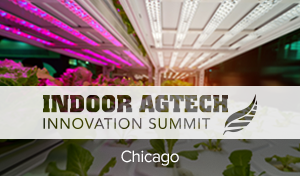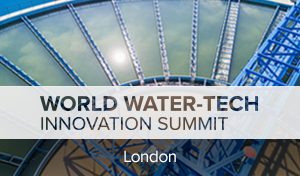We caught up with Carla Hilhorst, EVP R&D Foods & Refreshment at Unilever to understand how and why Unilever is tackling the responsibility of changing our food system and how partnerships and collaborations are key to overcoming the challenges.

Why do we need to change our food system?
We see three major issues that are related to our food system. First of all, around 2 billion people are overweight, while nearly a billion people go to bed hungry every day. At the same time, 30 percent of the food that is being produced is lost or wasted. And lastly, the way we produce food impacts climate change: 25 percent of CO2 emissions are linked to land use, and we over rely on just four crops for a majority of consumption – wheat, rice, corn and potatoes –, which exhausts land and challenges nutritional diversity. By 2050, we need 70 percent more food to feed the 9 billion people on our planet. For us, this clearly is a burning platform.
What is the responsibility of a company like Unilever?
As Unilever, we can and must play a role in finding solutions. Our foods business has a scale of almost 20 billion euros in turnover, and over 2.5 billion consumers using our products every day. We’re present in both developed and developing markets, and we make food products for people to consume at home and out of home. This gives us an enormous opportunity to make an impact. And we can make an impact across the whole value chain. By choosing to source our ingredients sustainably, we help farmers to increase their yields considerably and provide them opportunities for better livelihoods, and at the same time mitigate the effects of climate change. Through our brands, we can help consumers to make more sustainable choices, like eating more veggies.
How do you take that responsibility?
We can’t do it alone. The issues are so large, that they can only be addressed if we work in partnerships. We therefore recently opened a new global Foods Innovation Centre in Wageningen, the Netherlands. The Wageningen area in the Netherlands is often nicknamed “Food Valley” – a nod to Silicon Valley – in recognition of the breakthroughs in agri-food tech being generated by start-ups, science institutes, NGOs and companies located in the area. This unique location enables us to work in partnerships with leading academic research centres, start-ups and external partners. Only together can we transform the worldwide food system into a system that provides enough healthy food for 9 billion people in 2050. Have a look at how we aim to beat 2050.
How is a company like Unilever making plant-based accessible and affordable to the consumer?
We focus on a transition to more plant-based and alternative proteins. Not only because consumers are asking for more diverse and plant-based food products, but also because it’s healthier for our planet. That’s not easy for people who love meat. But many of our existing brands now offer plant-based alternatives that make that step towards less meat a lot easier. Think about Hellmann’s vegan mayo, a vegan Magnum and non-dairy Ben & Jerry’s. And we buy new brands that we can grow with our scale, like the Vegetarian Butcher. This brand has the mission to become the biggest butcher in the world, without using animals. They have a great story that appeals to meat-lovers, and their products taste great.
With our Knorr brand, we help people to eat more diverse vegetables, for example by adding alternative recipes on pack. Together with WWF, Knorr has identified the ‘Future 50 Foods’: 50 foods that have a high nutritional value and are much more sustainable to grow. Think about seaweed, chickpeas or Chinese cabbage, foods that are not that familiar to a lot of people and certainly not part of their diet. Knorr has inspired hundreds of chefs around the world use the Future 50 Foods in high-end restaurant menus, promote them on social media and use them throughout cookbooks.
With these relatively small changes to our products and recipes, we make a huge impact.
How do partnerships and collaboration fit into Unilever’s innovation strategy?
Some of the challenges we’re trying to solve are simply too big to solve on our own. We need to work with others that have a similar purpose. Discussions within the industry, with start-ups and scale-ups to understand what solutions are being developed to solve the issues in the food industry is important.
Next to meeting the nutritional challenges that focus on using less sugar, less salt and less saturated fat, we have also formulated so called “want sheets” on topics that are important to us: plant protein, sustainable packaging, personalised wellness, and data analytics and digitised R&D tools. We would love to discuss with companies that can help us move the needle in this space.

 CLOSE
CLOSE







